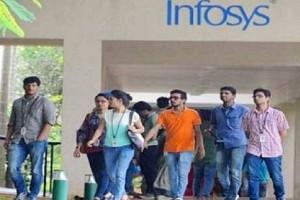Renowned Information Technology (IT) company Tech Mahindra will eventually have close to 25 to 30 percent of its employees work from home (WFH) permanently. This big news was announced by Manoj Bhat, CFO, Tech Mahindra.

While speaking at the first quarter results, Bhat said, “Now more than 90 percent of people are working from home. Customers are appreciating that we have been able to meet expectations in terms of service delivery. To me, overall long term, 25-30 percent will be permanent WFH.”
“Given the current uncertainty, working from offices will be a very small number, potentially at least for one or two quarters,” he added.
Meanwhile, earlier in a statement, the company claimed that less than one percent of the employees are currently working out of office. As some of the company's service lines like business process services have been facing challenges when employees worked from home.
Explaining more about the issue, Bhat asserted that the company has made investments in the integrated command and control centre that allows it to drive outcomes and put in risk mitigation plans, be it working from home or office, Money Control reports.
Currently, few other companies are moving to blended models when it comes to WFH. Like, TCS - it will have only 25 percent of employees working from office 25 percent of the time, while others have taken a more cautious stand. Few firms have said that it will be a hybrid model where some sections of employees will WFH and others from office, Money Control further reported.
During a recent conversation, VV Apparao, chief human resources officer, said working from home continuously is not healthy, neither physically nor mentally. “In the office, they will meet people, get some fresh air. When they work from home continuously, we believe that it is not healthy in the longer run. So we are not mandating anywhere,” he added.
“So now if you want to make it a permanent way of working then all the policy framework, guidelines for STPI, all need permanent changes, including the security aspect,” he added.





